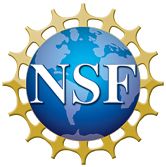Barnes et al., 2015
Sunlight and soil-litter mixing: drivers of litter decomposition in drylands
Barnes P.W., Throop H.L., Archer S.R., Breshears D.D., McCulley R.L., and Tobler M.A. (2015)
Progress in Botany 76: 273-302
-
Catalina-Jemez, INVESTIGATOR
Abstract
Decomposition of leaf litter is a key component of biogeochemical cycles but the mechanisms driving it in arid and semiarid ecosystems (drylands) remain unresolved. Here, we review recent findings that demonstrate dual roles of solar radiation (ultraviolet and photosynthetically active radiation) and soil–litter mixing as drivers of decomposition in drylands. We focus on the known and potential mechanisms by which these factors influence leaf litter decomposition, explore how the importance of these two drivers may shift over time, and propose possible avenues by which these factors may interact. Special attention is given to UV in sunlight, as this radiation is known to have multiple roles in influencing decomposition and has received considerable recent research attention. We also identify important uncertainties and challenges and offer a generalized conceptual model to guide future research aimed at enhancing our mechanistic understanding and quantitative modeling of the processes by which soil deposition and solar radiation together influence leaf litter decomposition rates in globally extensive dryland ecosystems.
Citation
Barnes P.W., Throop H.L., Archer S.R., Breshears D.D., McCulley R.L., and Tobler M.A. (2015): Sunlight and soil-litter mixing: drivers of litter decomposition in drylands. Progress in Botany 76: 273-302. DOI: 10.1007/978-3-319-08807-5_11
 This Paper/Book acknowledges NSF CZO grant support.
This Paper/Book acknowledges NSF CZO grant support.
Explore Further

